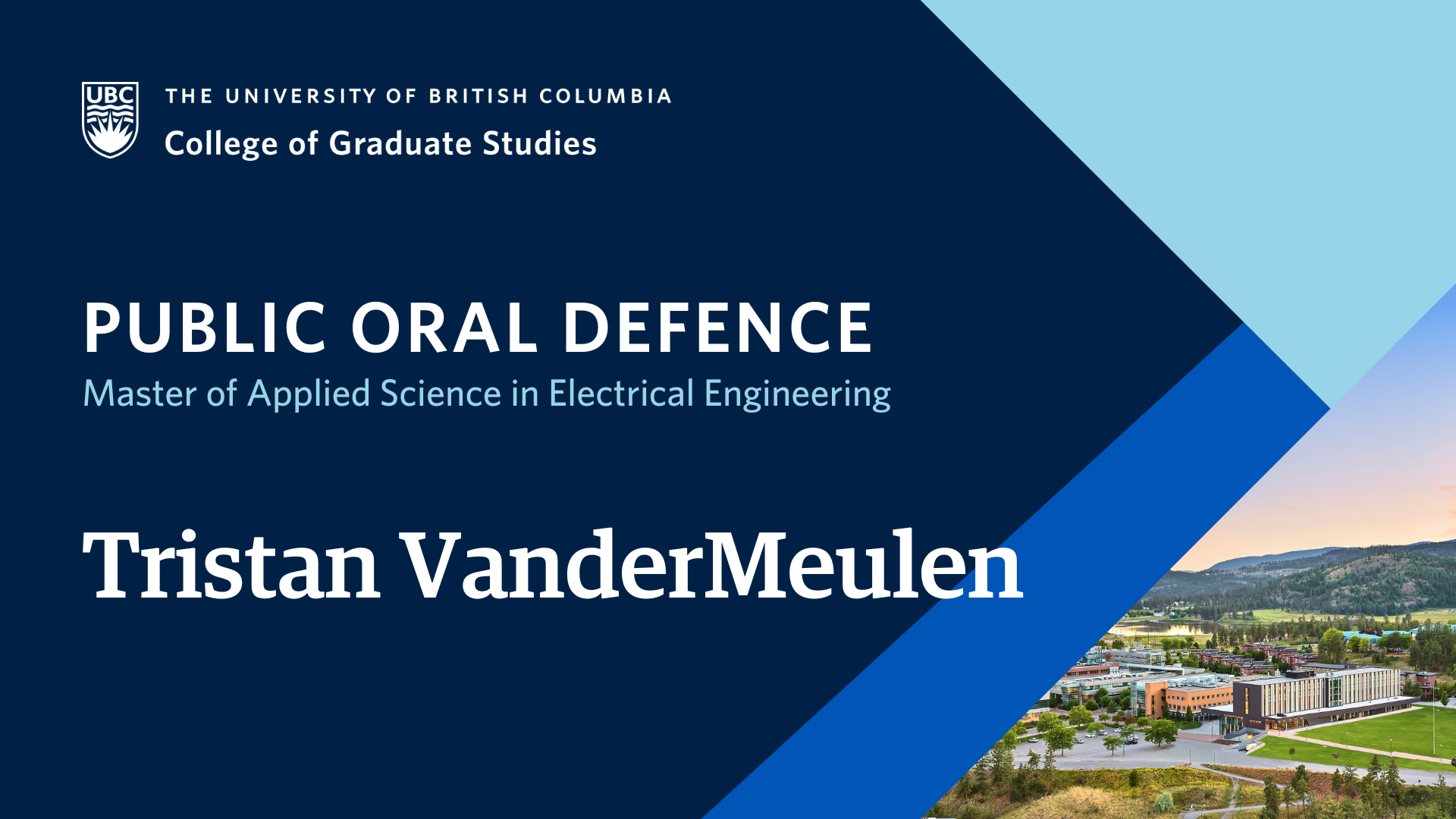
- This event has passed.
Thesis Defence: Using Canonical Filter Structures for Designing Inductive Power Transfer Systems
November 23, 2022 at 1:00 pm - 4:00 pm

Tristan VanderMeulen, supervised by Dr. Thomas Johnson, will defend their thesis titled “Using Canonical Filter Structures for Designing Inductive Power Transfer Systems” in partial fulfillment of the requirements for the degree of Master of Applied Science in Electrical Engineering.
An abstract for Tristan’s thesis is included below.
Defences are open to all members of the campus community as well as the general public.
Registration for in-person defences is not required.
ABSTRACT
The rapid growth of battery-powered electronic devices continues to motivate research into improved charging methods that are compact and efficient. Wireless power is an attractive solution, as it eliminates the need to physically connect the battery-powered device to a charger.
The focus of this thesis is on the design of resonant inductive power transfer systems. The synthesis of the resonant coupling circuits is approached using canonical filter structures. In order to convert filters to inductive power transfer systems, impedance inverter theory is utilized to model the inductive power transfer coupling. The use of filter theory has not yet been used to derive shunt-shunt inductive power transfer systems where there are additional complications in the synthesis of the shunt-shunt topology related to higher-order IPT networks. A solution is proposed, which allows for higher-order filter networks to be converted to a shunt-shunt inductive power transfer system.
The use of impedance inverter theory is examined as a method of compensation for variations in the spatial distance between resonators. Impedance inverters are used to represent the mutual coupling between the resonators, which shows how variations in the mutual coupling between resonators impacts the impedance level of the coupling link. Therefore, the input impedance to the system can be constant if the load resistance is varied to compensate for variations in spatial distance. As filter theory inherently has matched loads, it is shown that only the load resistance needs to be varied in the inductive power transfer system to compensate for spatial variation changes.
This thesis concludes with the implementation of an end-to-end inductive power transfer system with a class F-1 amplifier as a source. The class F-1 source has not been explored extensively for IPT systems. Of specific interest in the system design was evaluating whether the shunt resonators in the coupling network could replace the output shunt resonator in the class F-1 amplifier. When testing the configuration of the class F-1 amplifier with only the shunt resonator of the IPT system, it was observed that the output resonator of the class F-1 amplifier could not be eliminated.